 Petzlover
Petzlover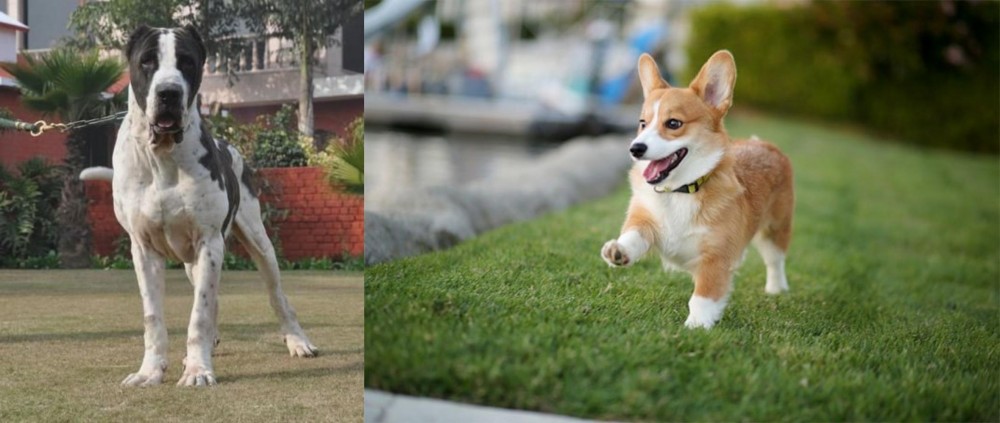 Alangu Mastiff is originated from Pakistan but Corgi is originated from United Kingdom. Alangu Mastiff may grow 56 cm / 23 inches higher than Corgi. Alangu Mastiff may weigh 76 kg / 168 pounds more than Corgi. Alangu Mastiff may live 4 years less than Corgi. Both Alangu Mastiff and Corgi has same litter size. Both Alangu Mastiff and Corgi requires Low Maintenance.
Alangu Mastiff is originated from Pakistan but Corgi is originated from United Kingdom. Alangu Mastiff may grow 56 cm / 23 inches higher than Corgi. Alangu Mastiff may weigh 76 kg / 168 pounds more than Corgi. Alangu Mastiff may live 4 years less than Corgi. Both Alangu Mastiff and Corgi has same litter size. Both Alangu Mastiff and Corgi requires Low Maintenance.
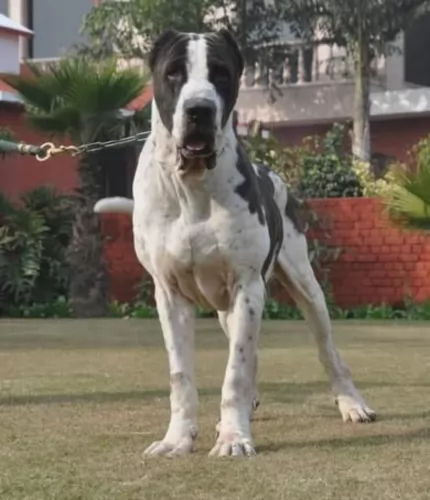 Alangu Mastiff is a breed that ,originates from southern India. Since the very beginning of this breed, it has been used as guard dogs and official dogs of Persian Army. They have been used mostly for wars and as a guard dogs for protection. Also, Alangu Mastiff was used as large gain hunters because of its size and power.
Alangu Mastiff is a breed that ,originates from southern India. Since the very beginning of this breed, it has been used as guard dogs and official dogs of Persian Army. They have been used mostly for wars and as a guard dogs for protection. Also, Alangu Mastiff was used as large gain hunters because of its size and power.
 Known as a cattle herding dog breed, the Corgi hails from Pembrokeshire, Wales. You get 2 breeds – the Cardigan Welsh Corgi and the Welsh Corgi.
Known as a cattle herding dog breed, the Corgi hails from Pembrokeshire, Wales. You get 2 breeds – the Cardigan Welsh Corgi and the Welsh Corgi.
The word ‘Korgi’ actually means ‘dwarf dog’. According to some, the small dog’s history goes back as far as 1107AD, but when you start doing research, you find that the Pembroke Welsh Corgi doesn’t have a traceable breed history.
The Pembrokeshire Corgi was officially recognized by the Kennel Club in the United Kingdom in 1934 and is a breed separate from the Cardiganshire Corgi.
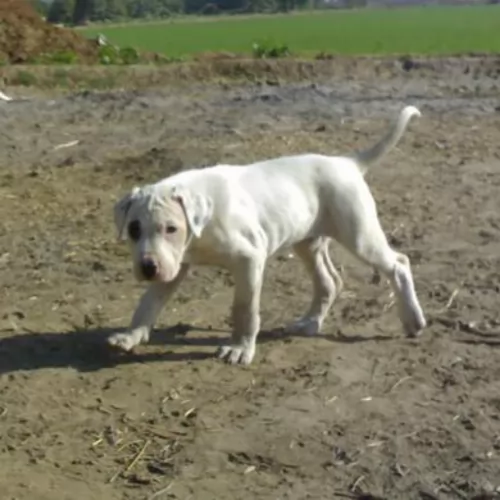 Weight of Alangu Mastiff depends but approximately, male weight is 70-90kg, while females are 60-70kg. While males height is 76-86cm. Females are slightly smaller with an average height of 75-80cm.
Weight of Alangu Mastiff depends but approximately, male weight is 70-90kg, while females are 60-70kg. While males height is 76-86cm. Females are slightly smaller with an average height of 75-80cm.
Lifespan depends drastically on every breed, but it is approximately 8-10 years.
The average litter size of Alangu Mastiff is 6-8 puppies.
Another Name for Alangu Mastiff is Sindh Mastiff.
 The Corgi is a small to medium sized dog, standing at 25 to 30cm and weighs between 10 to 14kg.
The Corgi is a small to medium sized dog, standing at 25 to 30cm and weighs between 10 to 14kg.
The coat of the Corgi is fairly short to medium length and is thick. You’ll find him to be available in colors such as red, fawn, black and tan and with white markings.
He has a sharp, intelligent face with an amicable expression. Looking much like a fox with short legs, he has a long, low-set body body and is a sturdy dog. His ears also stand erect and he has a docked tail.
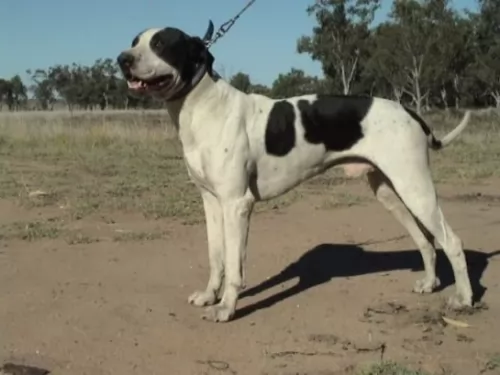 Alangu Mastiff is a very powerful breed. They are a giant breed that is very strong and protective. If you are first time owner, you definitely don’t want this breed as your first pet. They can be very aggressive, and if you are not a dominant owner who knows what he is doing all the time, you can have a lot of troubles with this breed. Alangu Mastiff is a guard dog, and they tend to protect the family no matter what is happening. Of course, with proper care and socialization, they can be wonderful pets that love family, and they can be gentle with children too. Basically, it is very important to socialize them from the earliest age. Alangu is also very hard to train, so you have to be patient and devote a lot of time to train your dog properly. Since they are large dogs, they require a lot of exercises. Walking with the leash is not enough for this breed. They need to run to be fully happy. They can be very aggressive towards other dogs, so it is not very recommendable to spend time with other pets, at least not if they are not socialized. If you train them from an early age, then you should still be careful how your dog behaves around other pets and animals. Don’t get this wrong, Alangu can be a wonderful pet for the whole family, but you have to be careful and well-trained for this breed. They require a lot of attention, patience and time, but overall they can be amazing pets.
Alangu Mastiff is a very powerful breed. They are a giant breed that is very strong and protective. If you are first time owner, you definitely don’t want this breed as your first pet. They can be very aggressive, and if you are not a dominant owner who knows what he is doing all the time, you can have a lot of troubles with this breed. Alangu Mastiff is a guard dog, and they tend to protect the family no matter what is happening. Of course, with proper care and socialization, they can be wonderful pets that love family, and they can be gentle with children too. Basically, it is very important to socialize them from the earliest age. Alangu is also very hard to train, so you have to be patient and devote a lot of time to train your dog properly. Since they are large dogs, they require a lot of exercises. Walking with the leash is not enough for this breed. They need to run to be fully happy. They can be very aggressive towards other dogs, so it is not very recommendable to spend time with other pets, at least not if they are not socialized. If you train them from an early age, then you should still be careful how your dog behaves around other pets and animals. Don’t get this wrong, Alangu can be a wonderful pet for the whole family, but you have to be careful and well-trained for this breed. They require a lot of attention, patience and time, but overall they can be amazing pets.
 The sweet little Corgi is well known with his association with Britain’s Queen Elizabeth who has always loved these dogs with their long bodies and short legs. But while the Corgi may well be associated with royalty, he isn’t too snooty by any means to be your pet.
The sweet little Corgi is well known with his association with Britain’s Queen Elizabeth who has always loved these dogs with their long bodies and short legs. But while the Corgi may well be associated with royalty, he isn’t too snooty by any means to be your pet.
He has got a wonderful personality, and he is just waiting to be allowed into your household where he will prove to be a loving, devoted companion and friend.
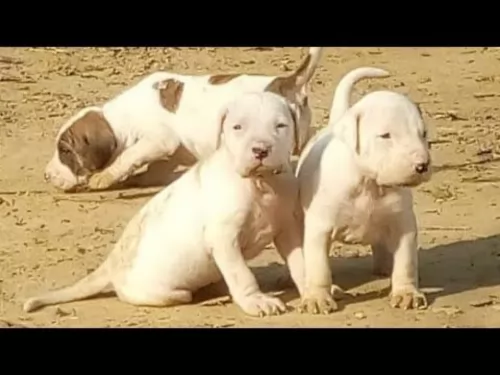 Basically most of the health problems depend on the dog to dog. If you choose puppy carefully, with an adequate examination of professional you will have a healthy dog. Alangu Mastiff is overall healthy breed, but as every other breed, they can develop some issues. Hip dysplasia is can be common for this breed, but again, only if you don’t select your puppy carefully.
Basically most of the health problems depend on the dog to dog. If you choose puppy carefully, with an adequate examination of professional you will have a healthy dog. Alangu Mastiff is overall healthy breed, but as every other breed, they can develop some issues. Hip dysplasia is can be common for this breed, but again, only if you don’t select your puppy carefully.
 A corgi, when he is well looked after, can live to be anything from 12 to 15 years of age. However even this sturdy dog may well be susceptible to some of the more common dog illnesses, such as hip dysplasia and degenerative myelopathy.
A corgi, when he is well looked after, can live to be anything from 12 to 15 years of age. However even this sturdy dog may well be susceptible to some of the more common dog illnesses, such as hip dysplasia and degenerative myelopathy.
Also you have to be careful with your Corgi and make sure that he doesn’t gain weight as this weight gain can bring with it a host of health complications.
Hip dysplasia with your Corgi is about an abnormal joint structure where the bones lose contact with each other. This parting of the bones is known as subluxation, and it is this subluxation that can cause your pet pain and discomfort and lead to osteoarthritis.
This disease isn’t reserved for old dogs either, and some young dogs can begin to show signs of this disease before they reach their first birthday. Without taking your dog to the vet and having medical intervention, your pet may eventually be unable to walk.
It is so sad when Degenerative Myelopathy invades your pet as it is a devastating disease watching your pet become paralyzed. The disease seems to come on when then dog is between 8 and 14 years of age where your pet loses co-ordination in the hind limbs, getting worse until he can no longer walk. Often your dog can no longer control his urine output.
There are no real treatments that have stopped the progression of the disease and your vet may suggest treatments that can make your pet more comfortable You vet may compassionately suggest your dog be put down, particularly for those people who can’t afford treatment.
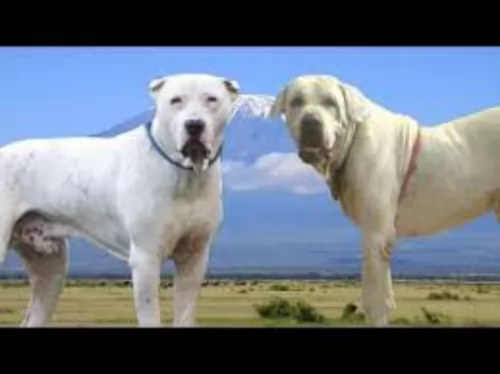 Feeding of your dog highly depends on activity, size, and food that you are feeding your dog. 5-10 cups of high-quality food divided into 2 meals would be enough for an average Alangu Mastiff, but again, you should feed your dog based on activity.
Feeding of your dog highly depends on activity, size, and food that you are feeding your dog. 5-10 cups of high-quality food divided into 2 meals would be enough for an average Alangu Mastiff, but again, you should feed your dog based on activity.
Puppies must eat 3-5 times per day, few cups of high-quality food. They need to eat quality food with a lot of vitamins and minerals to develop into a happy and healthy adult.
Groming is one of the easiest jobs that you should do around your Alangu Mastiff. They are very easy to take care off. Few brushes every now and then would be enough to have perfectly groomed pet. They do not have long coats with a lot of fur so there will be no hair around the house, and maintaining this majestic creature is very easy.
 The Corgi isn’t a particularly heavy shedder, so a brush down twice a week will be excellent for his thick coat. And of coarse he will thrive on the attention given to him during the brushing session.
The Corgi isn’t a particularly heavy shedder, so a brush down twice a week will be excellent for his thick coat. And of coarse he will thrive on the attention given to him during the brushing session.
Corgis love walks and sniffing around as they go along. They’re energetic dogs so you’ll need to include him in your daily walks which he just loves, and include him in some ball games.
Corgis may be short in stature but they are robust dogs – sturdily built. They are active dogs and can use up a lot of calories. They will certainly require a diet that features good quality protein.
Feed your Corgi a good quality food designed for special life stages – puppy, adult, pregnant female, senior dog and also dogs with illnesses.
Most Corgis do well having 2 meals of kibble a day. Puppies usually eat 4 meals a day until they are old enough to move onto an adult feeding schedule. Include cooked rice, meat and vegetables in his diet as well as raw meat from time to time and ensure there is always a bowl of clean, cool water available.